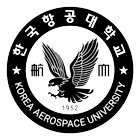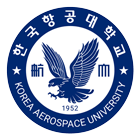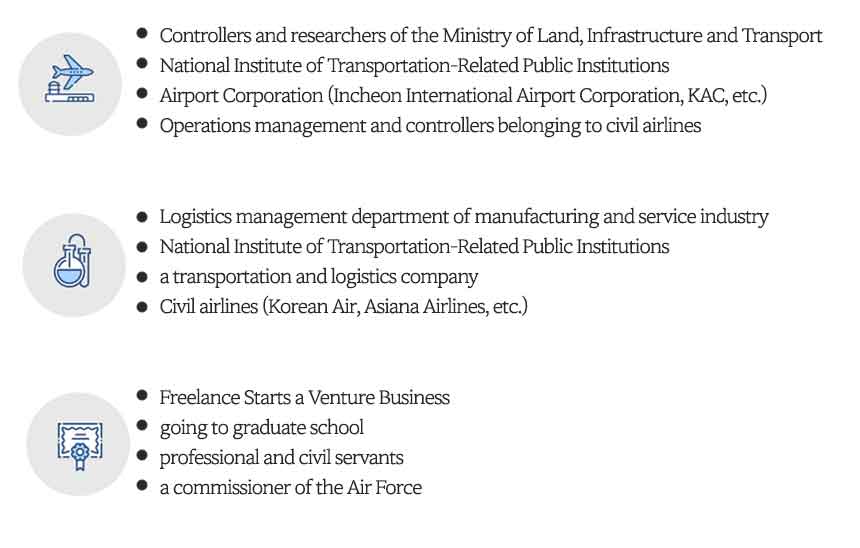- Degree & Programs
- Undergraduate
- College of Aviation & Management
Degree & ProgramsDegree & Programs
UndergraduateCollege of Aviation & Management
- Air transportation
major - Logistics
major - Business Administration
major - Aviation management
major - Department of
Aviation Operations - Department of Air
Transportation and Logistics
-

Logistics major
- Location :
- Rm No 426 , Headquarters Building
- Telephone :
- +82 2 300 0150
- E-mail :
- jylee@kau.ac.kr
Introduction
In modern society, logistics play an essential role across the economy and industry, beyond just the movement of goods.
The logistics major recognizes the importance of such logistics and aims to cultivate experts who will lead the innovation of the logistics industry of the future through the use of efficient and innovative logistics systems and advanced logistics technologies.
In this process, students will be prepared to lead the logistics industry of the future through education that combines theory and practice.
The logistics major is waiting for creative and active talents to adapt to the ever-changing logistics environment and lead it.
Academic Learning
The logistics major provides various educational opportunities through convergence education such as logistics-related education and data analysis. In particular, through the logistics manpower training project of the Ministry of Land, Infrastructure and Transport and the Ministry of Maritime Affairs and Fisheries, various field opportunities such as internships and contests are provided. As the field of logistics is broad and diverse, we are strengthening on-site training that combines software and artificial intelligence with logistics domain expertise.
Career Paths
○ Logistics management department of manufacturing and service industry
○ National Institute of Transportation-Related Public Institutions
○ a transportation and logistics company
○ Civil airlines (Korean Air, Asiana Airlines, etc.)
-

Air transportation major
- Location :
- Rm No 426 , Headquarters Building
- Telephone :
- +82 2 300 0150
- E-mail :
- jylee@kau.ac.kr
Introduction
The air transportation business is increasing day by day in the national economy.
The introduction of new technologies such as artificial intelligence and unmanned aerial vehicles is accelerating, and globalization is increasing the demand for human resources that meet international standards.
In line with this trend, we are making efforts to strengthen software education, strengthen research and graduate schools, and strengthen cooperation with industries in the air transportation sector.
Vision
Through theoretical education on specialized knowledge and skills required for air traffic management and operation of the air transport industry, and integrated education on undergraduate and field training Train high-level management personnel in the air transport sector
Future
1. Air traffic controllers : Ministry of Land, Infrastructure and Transport, Incheon and Korea Airports Corporation
2. flight managers : domestic airlines, including Korean Air and Jin Air, and foreign airlines
3. airport operators : Incheon International Airport Corporation and Korea Airport Corporation
4. research institutes : Korea Transportation Safety Authority, Korea Transportation Research Institute, Korea Aerospace Research Institute
-

Business Administration major
- Location :
- Rm No 106 , Main Hall
- Telephone :
- +82 2 300 0090
- E-mail :
- basec@kau.ac.kr
- Faculty :
- View More Faculty Members
Introduction
The Business Administration major cultivates both academic expertise and practical skills required in today’s dynamic business environment. Students acquire a solid foundation across diverse areas of business administration—such as management, accounting, finance, marketing, human resources, and strategy—while also developing strong competencies in data analysis, artificial intelligence (AI), and big data applications. This integrated approach enables students to build both broad-based knowledge of business functions and hands-on management experience. To foster a global perspective, the program offers English-taught courses, international exchange opportunities, and collaborative programs with overseas universities. In addition, students benefit from diverse career-support programs in employment and entrepreneurship, as well as industry-academia partnerships that provide on-the-job training and practical know-how.
With the rapid advancement of AI and big data, the demand for talented professionals in business administration continues to grow. This major equips students with cutting-edge knowledge and global capabilities to thrive in the future industrial landscape.
Academic Learning
The Business Administration major covers a wide range of fields, including management, economics, accounting, finance, human resources, marketing, operations, MIS, OR, international business, and strategy. The curriculum emphasizes both theoretical foundations and applied learning, enabling students to analyze organizations and business environments from multiple perspectives.
To address social and technological change, specialized courses and activities enhance competencies in AI and big data, global management, entrepreneurship, and practical business skills. Students may also pursue interdisciplinary studies through convergence majors, micro-degrees, and double majors in fields such as software, AI convergence, and aviation management. These options allow students to customize their academic journey, deepen their understanding of business administration from diverse perspectives, and strengthen their competitiveness in the industrial field.
Career Paths
Graduates of the Business Administration major pursue diverse careers across industries and institutions. Career paths include :
● Corporate & Management Positions
- Large corporations, IT companies, financial and investment institutions, airlines, and global enterprises.
● Education & Research
- Professors, researchers, and graduate study (domestic and abroad).
● Professional Careers
- Certified public accountants, tax accountants, patent attorneys, customs specialists, labor consultants, and other licensed professionals.
● Public & Global Service
- Public enterprises, government agencies, and international organizations.
● Entrepreneurship
- Start-ups and new venture creation.
Through comprehensive education, practical training, and global exposure, graduates are prepared to contribute meaningfully to industry, academia, and society.
-

Aviation management major
- Location :
- Rm No 326 , Main Hall
- Telephone :
- +82 2 300 0350
- E-mail :
- mi1020@kau.ac.kr
Introduction
The Aerospace Management major, newly established in 2024, is designed to rapidly adapt to evolving trends in the aviation industry while maintaining the practical knowledge required in aerospace management. The program aims to develop creative and specialized aerospace professionals by offering a curriculum focused on both theoretical and cutting-edge practical aspects of the field. The curriculum includes various hands-on training programs, such as global field studies, global internships, language training, ICAO joint education programs, and both short-term and long-term practical experiences in aerospace management. Additionally, opportunities for dual degrees and exchange programs with prestigious international universities are provided. These experiences help enhance students' competitiveness for careers in airlines (both domestic and international), airports, MRO (Maintenance, Repair, and Overhaul) services, cargo, ground operations, aircraft manufacturers, and aerospace-related public institutions, government agencies, and research organizations.
Curriculum Overview
In the first year, students focus on general education and introductory courses in aerospace management. In the second year the course focus on the principles of aerospace management, providing theoretical knowledge about the roles and functions of various sectors of the aerospace industry. From the third year onwards, students focus on advanced and specialized subjects in aerospace management through intensive training in practical aspects through case studies of real aerospace companies, operational strategies, and on-site practical experiences. Additionally, students engage in practical programs such as global field studies, global internships, language training, ICAO joint education programs, and both short-term and long-term practical exercises in aerospace management. Opportunities to participate in exchange programs with prestigious international universities are also available. These experiences aim to cultivate globally competent aerospace management professionals equipped with the skills and expertise necessary for success in the international aviation industry.
Career Paths
Aerospace management and administrative roles in airlines (domestic/international), airports, cargo, MRO services, ground operations, aircraft manufacturer, defense companies: Korean Air, Asiana Airlines, domestic low-cost carriers, international airlines, and Korea Aerospace Industries (KAI).
Public institutions and government agencies related to aviation: Incheon International Airport Corporation, Korea Airports Corporation, Korea Transportation Safety Authority, and the Korea Aviation Safety Agency.
Educational and Research Positions: Korea Aerospace Research Institute, Korea Transport Institute, Korea Aerospace Association, as well as teaching positions at domestic and international universities and research roles in government-funded organizations
-

Department of Aviation Operations
- Location :
- Rm No 526 , Headquarters Building
- Telephone :
- +82 2 300 0080
- E-mail :
- mkpark@kau.ac.kr
Introduction
This department focuses on fostering future aviation global leaders with an educational focus on cultivating safe and efficient aircraft operation capabilities, knowledge and experience to meet on-site operational needs, securing foreign language proficiency, and cultivating leadership based on correct personality and responsibility.
To this end, we offer theoretical education such as flight principles, aerodynamics, aviation safety and human factors, high-performance aircraft system operation, aviation English and ATC communication, a variety of realistic hands-on courses, and flight courses for pilot qualification, and operate a program to systematically complete customized career passes for each student's desired career path under the guidance of a dedicated advisor.
In addition, many seniors who graduated from this department, which was established for the first time in the domestic private sector in 1952, have been recognized for their competence and excellence in domestic and foreign air operations, and their successful careers and special mentoring for juniors are also a great pride of the department.
Academic Learning
domestic aviation law
Domestic Aviation Act on the requirements and standards for aircraft operation, regulations for navigation safety, and fulfillment of international obligations, etc., focusing on the domestic aviation safety law Focusing on the domestic aviation safety law, we will learn about the requirements and standards for aircraft operation, regulations for navigation safety, and fulfillment of international obligations.
Introduction to Aviation Safety
Form a safety mind as a democratic citizen, learn about the rules, procedures, systems, and equipment necessary for aircraft safety as a pilot, and understand the functions and application methods of the Aviation Safety Management System (SMS) required by the International Civil Aviation Organization.
Aeronautical Meteorology Ⅰ, Ⅱ
Develop safe aircraft operation capabilities by learning the characteristics and causes of various factors affecting air phenomena and weather, and understanding the effects of various weather on aircraft operation. * Students after 2025 take "Aerial Meteorology" integrating Ⅰ and Ⅱ
Aircraft systems and equipment
Understand the operating principles and functions of various aircraft-mounted equipment such as aircraft, engine instruments, navigation instruments, and warning devices, and acquire normal flight procedures and first aid procedures performed by controlling these systems and equipment, and aircraft performance calculation capabilities.
ATC Radio Communications Ⅰ, Ⅱ
Understand the phasesology and communication procedures for air traffic wireless communication between pilot controllers, and cultivate the ATC wireless call capabilities and situational awareness capabilities required by flight method and operating environment. * Students after 2025 take "ATC Radio Communications" integrating Ⅰ and Ⅱ
aerodynamic
Understand aerodynamic features that affect flight performance, such as lift and drag, and cultivate basic knowledge of flight mechanics, such as static/dynamic stability and maneuverability, when starting an aircraft such as take-off, landing, elevation, descent, and turning.
an aircraft propulsion system
Understand the basic theory of thermodynamics, structure, components, and performance of reciprocating engines, and learn the operating principles and functions of aircraft power sources required for flight, such as the type, structure, and operation method of jet engines.
Air operation information and procedures Ⅰ, Ⅱ
Through the collection and utilization of various flight information, all flight procedures such as VFR, IFR, emergency procedures, and special flights are learned as basic and advanced courses. * Open for students before 2024
Air operation information
Learn how to collect and utilize all flight information, the characteristics of various flight information, and the application criteria for aircraft operation. * Open for students after 2025
air operation procedures
Learn the standards and characteristics of various domestic and international flight procedures and learn how to apply them to actual aircraft operations such as VFRM IFR emergency procedures and special flight procedures. * Open for students admitted after 2025
basic aerial navigation
Learn the principles and functions of various navigation methods necessary for aircraft operation, such as fingerprint, speculation, and radio navigation, and cultivate the ability to establish a navigation plan that can be applied to aircraft operation as a pilot.
Instrument Flight Theory Ⅰ, Ⅱ
Understand the basic knowledge and principles to be applied when navigating in accordance with the Instrument Flight Rules (IFR), and learn how to use various aircraft and navigation safety facilities and check items through basic and deep courses. * Open for students before 2024
Instrument flight theory
Understand the purpose and method of instrument flight, the operating principles and characteristics of various aircraft, basic instrument flight procedures and considerations. * Open for students after 2025
Instrument flight procedure
Learn how to apply IFR flight procedures using aircraft and navigation safety facilities to secure navigation and instrument flight capabilities. * Open for students admitted after 2025
Aeronautical Human Factors Division & C.R.M.
Understand the physical, psychological, and physiological capabilities and limitations of flight attendants exposed to various public environments, and learn how to use Crew Resource Management (CRM), which ICAO emphasized to member countries around the world to overcome the limitations of pilots' human factors.
Basic Aviation Theory
Strengthen the foundation for taking major courses by learning various basic aviation knowledge related to aircraft operation, such as the principle of flight, aircraft performance, and method of operation, for new students.
International aviation law
Understand the international aviation standards and procedures that flight attendants should apply by learning the regulations of major aircraft, such as ICAO International Standards and Recommendations (SARPs), EASA, and FAA.
a high-performance aircraft system
Learn all system functions and operation methods of civil airline high-performance aircraft equipped with the latest technology and equipment to maximize capacity for advanced aircraft operation when joining civil airlines in the future.
aircraft performance
Understand the thermodynamic fundamental theory of aircraft engines and the cycle analysis and performance of engine components.
understanding of flight
Learn the birth and evolution process of airplanes, the science hidden in airplanes, all physical phenomena related to flight, the basic laws governing them, and the development of aviation technology.
theory of aviation education
Learn basic knowledge and educational psychological theories about flight education, and practice teaching activities of future flight teachers, such as writing a list of subjects and teaching plans.
Aviation English I, II
By learning specialized aviation English proficiency for each operating environment under the guidance of experts, EPTA's ability to obtain higher grades is cultivated, and it is operated as a basic course and an advanced course.
Simulated Flight Practice (BATD)
Understand the operation and operation of training plane C-172 using practical equipment (BATD), practice take-off and landing and aerial operation through simulated clock flight, basic instrument flight, and experience outdoor navigation training (Cross Country).
Human Factors and Industrial Site Safety Management
Through an understanding of human performance and limitations, the ability to consider various safety management focuses and ideas in all industries, including the aviation sector, and to apply them to practice is cultivated.
Aircraft Accident Investigation Theory
By identifying the cause of aircraft accidents, we learn all procedures and technical considerations for Accident Investigation, such as aircraft system inspection, human factors and flight record analysis, and report preparation to prevent the recurrence of similar/same accidents.
Career Paths
1. a military commander or a civil aviation pilot with military experience
2. a Korean Air pilot
3. a domestic and foreign civil airline pilot
4. graduate/public/airline enterprise
-

Department of Air Transportation and Logistics
- Location :
- Rm No 426 , Headquarters Building
- Telephone :
- +82 2 300 0150
- E-mail :
- jylee@kau.ac.kr
Introduction
Since its establishment as the Department of Aviation Management in 1988, the Department of Air Transportation and Logistics has put a lot of effort into education and research specialized in the field of air transportation and logistics. It operates an air traffic control training center designated by the Ministry of Land, Infrastructure and Transport and has continuously improved its undergraduate education and research infrastructure through various government support such as the Ministry of Land, Infrastructure and Transport's logistics specialization project in 2010, the Ministry of Education's university specialization project in 2014, and the 2020 shipping and port logistics professional training project. Through these efforts, we have been able to grow into a department with the best status in Korea in air transportation and logistics, and numerous graduates have entered and are active in related industries. The air transportation and logistics industries are increasing in the national economy day by day. The introduction of new technologies such as artificial intelligence, unmanned aerial vehicles, and IoT is accelerating, and the demand for human resources that meet international standards is increasing due to globalization. The Department of Air Transportation and Logistics will continue to work hard to develop into a world-class competitive department in education and research in the field of air transportation and logistics, and we ask for your interest and support. Thank you.
Career Paths

- 76, Hanggongdaehak-ro, Deogyang-gu, Goyang-si, Gyeonggi-do, 10540, Korea
- Phone - +82-2-300-0114 FAX - +82-2-3158-5769 E-mail - webmaster@kau.ca.kr
- COPYRIGHT 2019 Korea Aerospace University. All right reserved.
 Go top
Go top